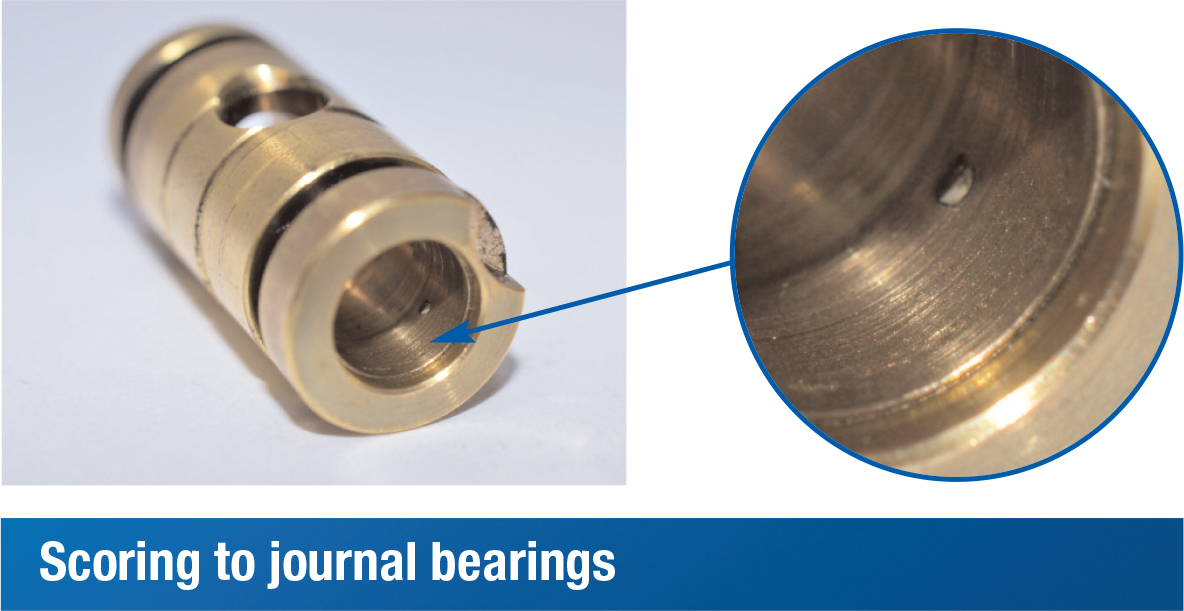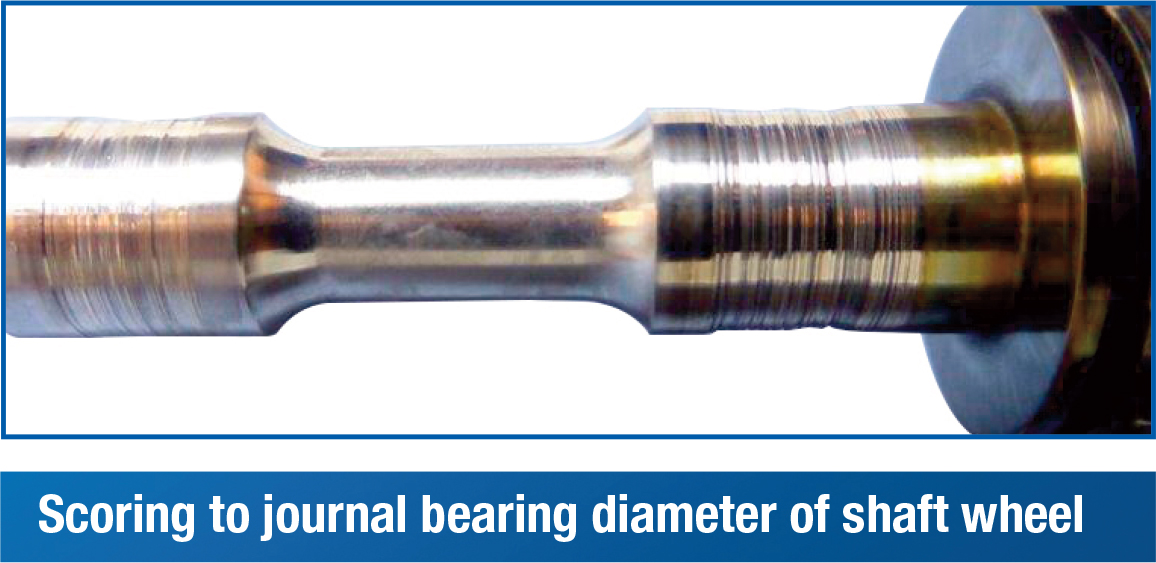Oil Contamination
Oil is very often overlooked as a critical component, however clean filtered engine oil is a major requirement and a necessity for all turbochargers. Contamination will cause rapid wear to various components and eventually cause catastrophic failure.
Signs of oil contamination:
- Scoring to thrust parts;
- Scoring to journal bearings;
- Scoring to journal bearing diameter of shaft and wheel;
- Smell of fuel in the oil.

Alternatively, if oil levels are too low or if the wrong grade of oil is used, the turbocharger will also fail. If the original cause of failure is not identified it is likely the same type of failure will occur on the remanufactured turbo. Catastrophic damage to the bearing systems can occur within seconds of the turbocharger commencing operation.
Common causes of oil contamination:

- High carbon build-up in engines quickly contaminates new oil;
- Contamination of new oil whilst servicing (accidental);
- If the oil filter is blocked/damaged or a poor quality oil filter is used;
- Degraded oil caused by excessive temperatures or extended service intervals;
- Engine wear and tear, leaving deposits in the oil;
- Fuel or water mixing with oil supply.
Turbo failure prevention:

- Using new oil and filters helps to reduce the risk. We advise that filters recommended by the engine manufacturer are used when refitting the turbo;
- Replacement oil must be the correct grade for the engine;
- Replacing or cleaning the oil inlet pipes and in-line micro filters helps to prevent carbon deposits or sludge restricting oil flow to the bearings.
For further information on this or other topics, please contact Melett Technical Support – [email protected].



